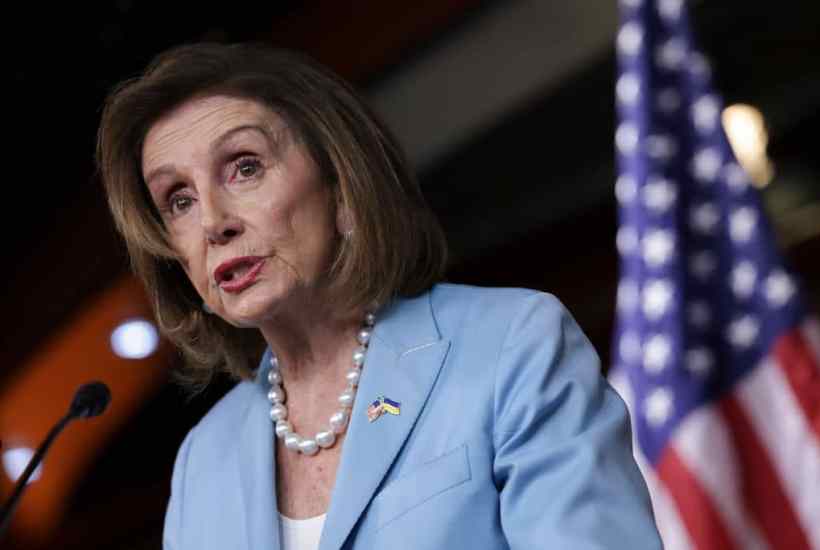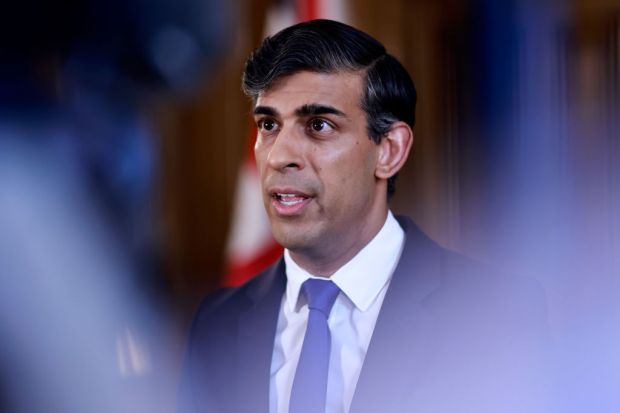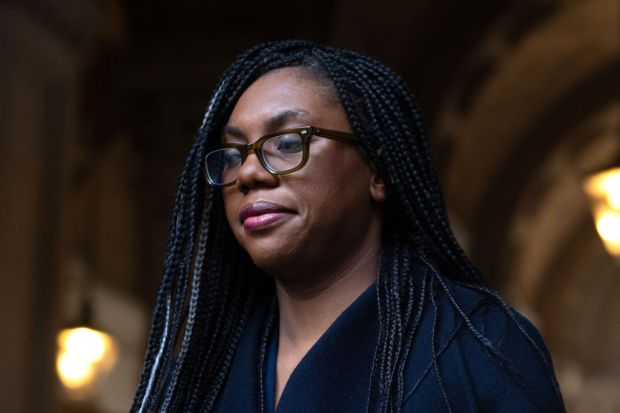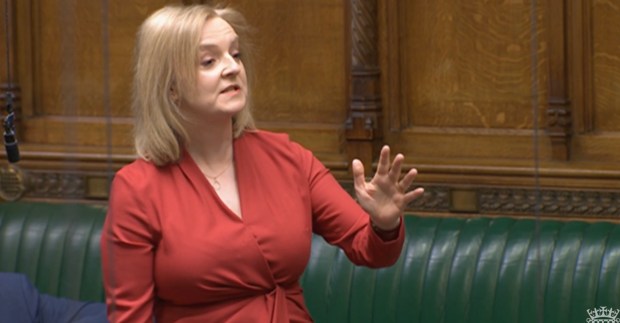The Eucharist has, to use the current jargon, been weaponised in the standoff between Nancy Pelosi, Speaker of the US House of Representatives, and Archbishop Salvatore Cordileone of San Francisco. He has banned her from receiving holy communion anywhere in his diocese because of her outspoken support for abortion. She’s been sounding off for Roe v Wade after the leaked Supreme Court draft judgment suggesting it may be reversed.
Now, on a talk show, she’s counterattacked. When asked about her ban, she observed:
‘I wonder about the death penalty, which I am opposed to. So is the church but they take no action against people who may not share their view.’
The Archbishop said that she was not to come to the altar during mass for communion because her abortion views have become ‘more extreme’ and ‘more aggressive.’
He’s perfectly entitled to deny her communion within his diocese, though it’ll be individual priests in parishes who’ll have to carry the ban out. Under canon 915 of the Code of Canon Law, those ‘obstinately persevering in manifest grave sin are not to be admitted to holy communion’. And he has a point that lobbying vigorously for a ruling that effectively allows abortion up to 23 weeks’ gestation (viability is the criterion here) is a manifest (the adjective is important) grave sin. There’s an analogy with what’s known as reserved sins, which can’t be absolved by a priest, but must be referred to a bishop: it’s a way of signalling that the sin in question is a big deal, and isn’t addressed elsewhere, such as in the secular criminal code.
Archbishop Cordileone put the matter thus:
‘Speaker Pelosi remains our sister in Christ. Her advocacy for the care of the poor and vulnerable elicits my admiration. I assure you that my action here is purely pastoral, not political. I have been very clear in my words and actions about this.’
He went on to point out that the ban was a last resort ‘after numerous attempts to speak with her to help her understand the grave evil she is perpetrating, the scandal she is causing and the danger to her own soul she is risking’. That bit about causing scandal, publicly flouting the teaching of the church on a serious moral issue, is the crucial thing.
In response, Pelosi, in a very unsisterly spirit, resorted to the rhetorical device known as whataboutery. What about politicians who support the death penalty, she says, correctly observing that the Church is opposed to its use. Yet the death penalty isn’t quite in the same category; for much of its history the Church has allowed for the execution of those guilty of serious crime; but ever since it dropped Aristotelian biology, it has taken a serious view of abortion.
For good measure, she attacked the Archbishop’s approach to homosexuality as well:
‘Now, our archbishop has been vehemently against LGBTQ rights, too – in fact, he led the way in some of the initiatives on – an initiative on the ballot in California.’
She’s on shakier ground there; the Archbishop hasn’t suggested that gay people shouldn’t be receiving communion. But he is absolutely entitled to campaign against gay marriage as being fundamentally at odds with the Christian understanding of marriage as a man-woman thing. Nancy Pelosi here is just stirring it up.
What the American church is left with, is a mess. Pope Francis let it be known – not long after the communion question was raised in connection with Joe Biden and his support for abortion – that he has never refused communion to anyone. Similarly, and quoting the Pope almost verbatim, the Archbishop of Washington, Cardinal Wilton Gregory, has said that he too will be giving communion to all comers.
So if Speaker Pelosi wants to take communion without embarrassing the officiating priest, she’d better stick to going to communion in Washington rather than San Francisco. A bishop decides what goes in his diocese. Meanwhile, Catholics in a state of mortal sin for murder or adultery or similar, really shouldn’t be taking the Eucharist, but if they do, so long as no one knows, the priest at the altar won’t be obliged to turn them away. Breathe again, folks.
Got something to add? Join the discussion and comment below.
Get 10 issues for just $10
Subscribe to The Spectator Australia today for the next 10 magazine issues, plus full online access, for just $10.




















Comments
Don't miss out
Join the conversation with other Spectator Australia readers. Subscribe to leave a comment.
SUBSCRIBEAlready a subscriber? Log in